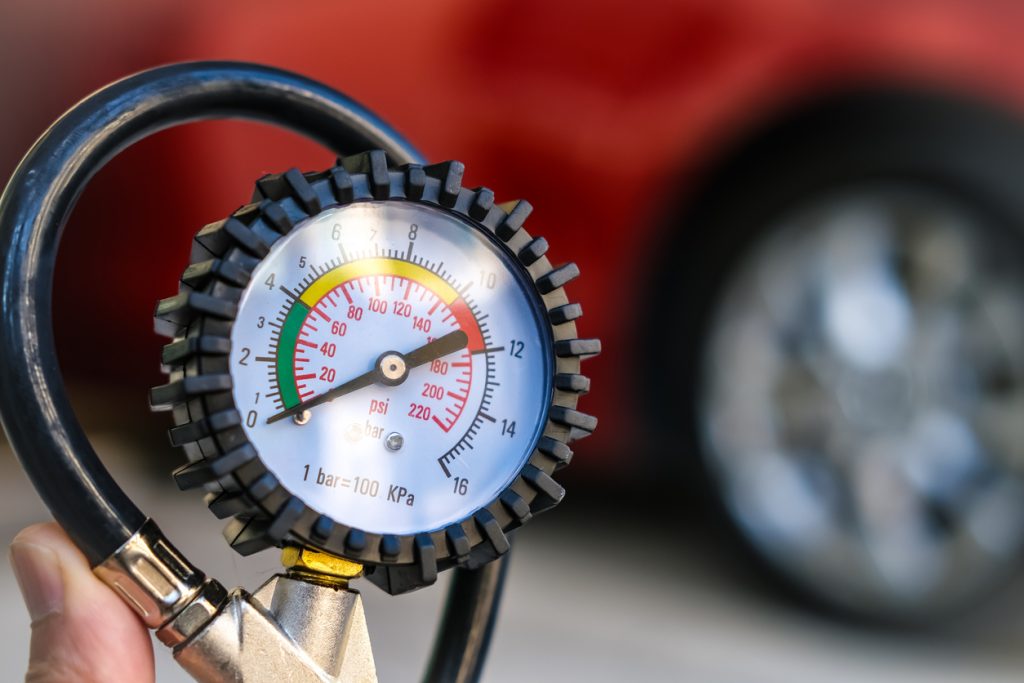A tyre pressure sensor (TPS) is a small but essential device that monitors your car’s tyre pressure in real time. Maintaining proper tyre pressure is crucial for safe driving, fuel efficiency, and prolonging the life of your tyres.
In Nigeria, where roads vary from smooth expressways to rugged rural paths, keeping tyres properly inflated can prevent accidents and avoid unnecessary wear and tear. Tyre pressure sensors alert drivers whenever the pressure is too high or too low, ensuring optimal performance and safety.
Why Tyre Pressure Sensors Matter
Here’s why every Nigerian driver should pay attention to tyre pressure and consider a functional tyre pressure sensor:
- Improved Safety: Under-inflated or over-inflated tyres can lead to blowouts, loss of control, or longer braking distances.
- Better Fuel Efficiency: Properly inflated tyres reduce rolling resistance, saving fuel in city traffic or long road trips.
- Extended Tyre Life: Prevents uneven wear and tear caused by incorrect pressure.
- Optimized Handling: Ensures smoother rides and better control on Nigeria’s diverse road conditions.
- Early Warning System: Avoids costly repairs by alerting you to potential tyre problems early.
How Tyre Pressure Sensors Work
Modern cars use either direct or indirect tyre pressure monitoring systems:
- Direct Tyre Pressure Sensors: Mounted inside the tyre, they transmit real-time pressure readings to the dashboard display.
- Indirect Tyre Pressure Sensors: Use the ABS system to estimate tyre pressure based on wheel rotation and alert the driver if discrepancies occur.
Regardless of type, these sensors provide critical information that allows drivers to act before small issues become dangerous problems.
Common Tyre Pressure Issues in Nigeria
Several factors can affect tyre pressure on Nigerian roads:
- Hot Weather: High temperatures cause air expansion, increasing pressure.
- Potholes and Uneven Roads: Can cause gradual pressure loss or tyre damage.
- Heavy Loads: Overloading vehicles reduces tyre pressure and stresses tyres.
- Neglect: Many drivers rarely check tyre pressure manually, increasing the risk of accidents.
Regularly monitoring your tyres using sensors ensures consistent performance and safety.
Maintaining Your Tyre Pressure Sensor
Tyre pressure sensors are durable but require proper care:
- Check Batteries: Many direct sensors use batteries that last 5–10 years.
- Calibrate Regularly: Ensure sensors are accurate after tyre rotation or replacement.
- Avoid Harsh Impact: Potholes or curbs can damage the sensor.
- Professional Installation: Have sensors installed by trained technicians to prevent leaks or malfunctions.
Travo.ng: Your Partner for Safer Driving
At Travo.ng, we know Nigerian roads demand both skillful driving and reliable vehicle maintenance. From expert travel advice to logistics support, Travo.ng helps drivers keep their vehicles safe, efficient, and ready for any journey.
Whether it’s managing a fleet, commuting across the city, or embarking on a long-distance trip, maintaining tyre health with sensors is a simple way to ensure peace of mind.
Final Thoughts
A tyre pressure sensor is more than a convenience — it’s a safety feature that every Nigerian driver should use. By keeping tyres in optimal condition, you protect yourself, passengers, and other road users while improving fuel efficiency and tyre lifespan.
For trusted insights, vehicle maintenance tips, and reliable travel or logistics services in Nigeria, Travo.ng remains your go-to partner for smarter, safer driving.







